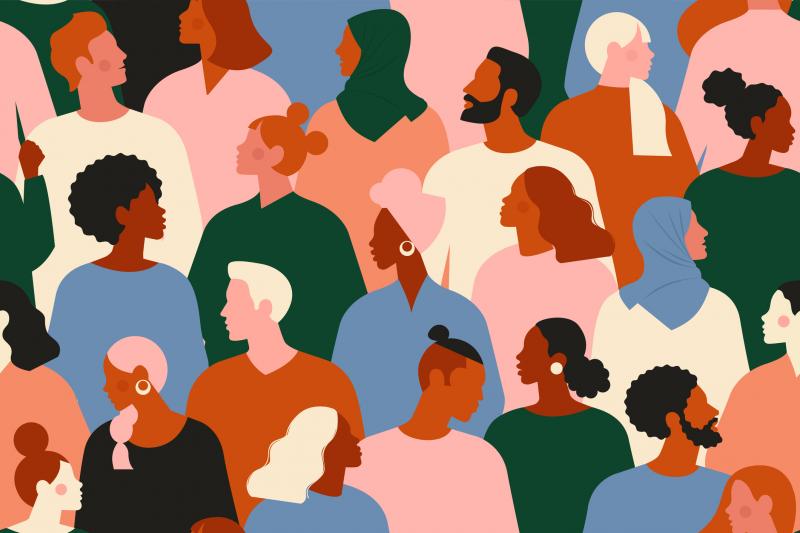What is racial literacy and why should it be incorporated into the school curriculum? Aldaine Wynter shares his experiences.

In my first blog post, ‘Beginning the conversation round race, diversity and inclusion with staff’, I briefly spoke about racial literacy and its place in anti-racist CPD in schools. While the term will be more familiar to American educators, it will come as no surprise that more and more educators in the UK are becoming aware of racial literacy and how it is being applied – or not – in their school setting.
Students, too, are being more vocal about what they want to be taught in their curriculum.
With our classrooms becoming increasingly more diverse, I, like many academics, feel that we need to get behind decolonising the curriculum.
Those teaching a flexible curriculum, such as the International Baccalaureate’s Middle Years Programme (MYP) may find it easier to introduce themes that amplify the voices and experiences of Black people. Educators teaching the UK national curriculum need to be willing to introduce small elements that have the overall aim of improving diversity while still ensuring the material needed for their courses is covered in the already-quite-tight timeframe.
The best definition for racial literacy that I have come across so far comes from The Runnymede Trust, in its 2020 publication, ‘Race and Racism in English Secondary Schools’. Runnymede defines racial literacy as:
the capacity of teachers to understand the ways in which race and racism work in society, and to have the skills, knowledge and confidence to implement that understanding in teaching practice.
If you have not done so already, I highly encourage you to read Runnymede’s report, whether or not you are an educator in a secondary school. The report outlines some interesting findings that would also be applicable in a primary context.
Teachers will be at different stages with regards to their own racial literacy, which will be based on personal passions and their school’s preferences. For some, I imagine it may be a personal journey. Others may be trying to get their school to invest in a long-term plan to promote racial literacy throughout the school community.
I first came across the term ‘racial literacy’ when I was studying my masters. Most of the literature around the topic was based in the US and seemed to be deemed as controversial, with Critical Race Theory (CRT) making the headlines from numerous news outlets. CRT focuses on the ideology that race is a social construct that is used to oppress and exploit people of colour.
However, we have not had such polarising views in the UK with regards to CRT or racial literacy. This could be because there is a national curriculum, unlike in the US, where each state takes control of what is taught in school. Or it may be that we as a nation have only recently began having an open discussion around the diversifying of our curriculum.
As an IB teacher, I am fortunate enough to be teaching a curriculum that encourages project-based learning. And, as such, I have been able to explore how maths, for example, could be presented to the students with social justice in mind.
While I still explored social justice through projects with my students after my studies, I did not a first explicitly look at teaching racial literacy. It was not until I was appointed as diversity and inclusion coordinator that I began to think about racial literacy in my school’s context.
Given my role, I thought about how I could reach as many members of the school community as possible. I had some questions:
For me, racial literacy was about ensuring that all members of the school community were confident in exploring and discussing themes of race.
I wanted teachers to better understand the experiences of Black students and staff.
I wanted students to believe that the school was committed to racial equality.
Lastly, I wanted parents to be confident that the school were more than just the words they promote and were willing to be true to their visions and values.
All in all, I feel the promotion of racial literacy was instrumental in creating a safe space to be reflective and have an open and honest dialogue.
In my next blog post, I will explain how I went about introducing more representation into the teaching of my school's curriculum.
The Runnymede Trust is a leading independent race equality think tank. From representation in the staffing body to school curricular and policies, Runnymede has a range of reports and recommendations that educators may find useful.
For educators wanting to improve their confidence and skills, Amnesty International has a huge range of free resources for teachers in a variety of disciplines that want to explore including social justice in their teaching.
My favourite project inspired by Amnesty International is the social justice project that my students complete in Year 11. Students can choose any social cause that they are interested in and are given statistics and information from the United Nations and World Health Organization.